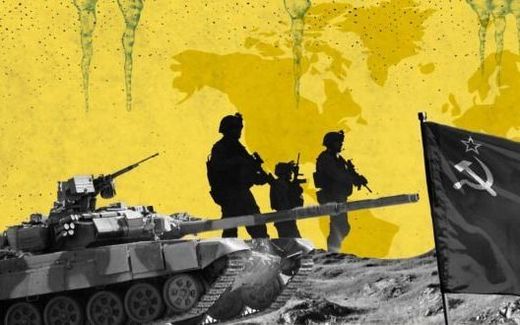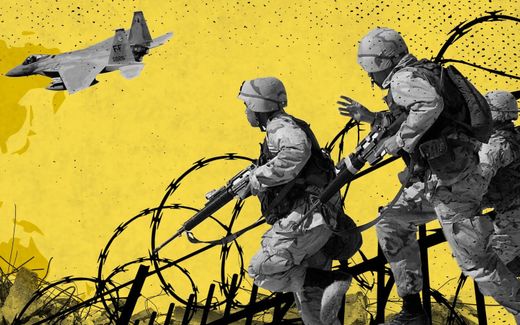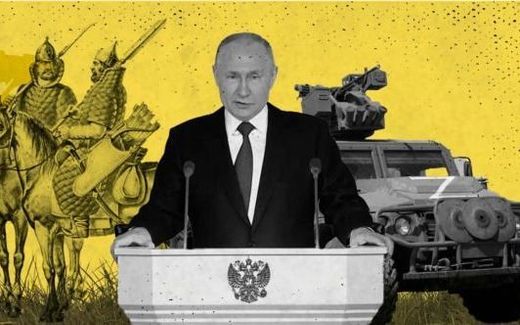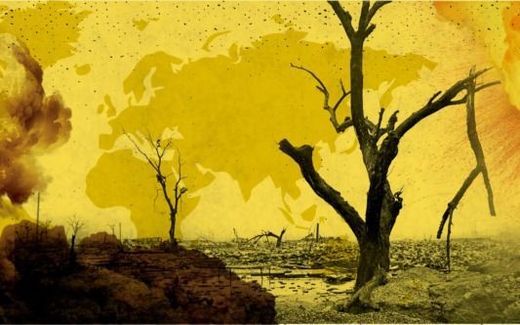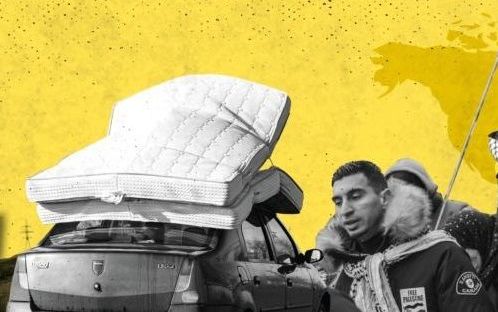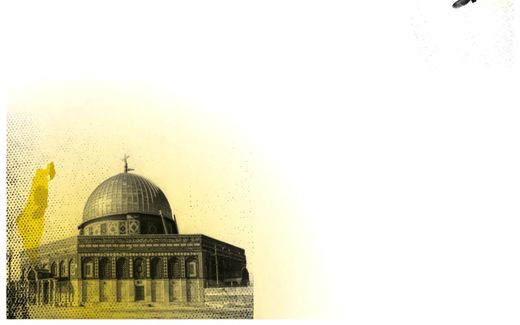Ukraine and the mistakes in waging a war
15-03-2024
Opinion
Jacob Hoekman, RD
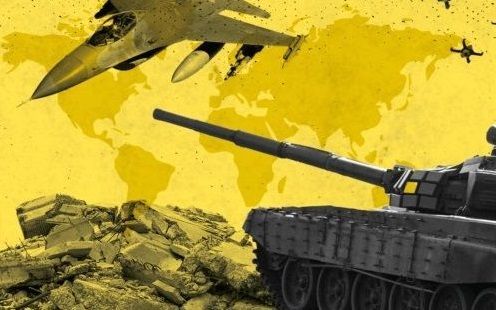
Photo Corné van der Horst
Opinion
This rubric started two years ago, and the Russian invasion of Ukraine was an important reason for that. In the meantime, many other subjects passed by, but the war is still there. After two years, it becomes more and more apparent that Ukraine threatens to become a frozen conflict – like many other conflicts around the long borders of Russia.
The Russians will likely not be able to gain large parts of territory (let alone reach Kyiv). Still, the Ukrainians will probably not be able to recover the lost parts of the country easily either.
Journalist Jakob Hoekman researches history to find answers to difficult questions related to the news.
Therefore, the temptation to draw a new border along the current frontline is strong. However, the problem is that this is no solution. "We" remain unchanged against "they".
How could it have been different?
What should have been done differently, and how should it have been done instead? That is the central question in the book "How to Fight a War", which was published by the British war researcher Mike Martin in 2023. He checks what basic warfare and military science actually look like. And that is greatly needed, as the majority of the public has no idea. Most of us, including myself, have grown up in a time of peace.
Real experts are scarce, but Martin is one of them. One of the biggest eye-openers of his book is that war is not mainly about the number of tanks, fighter jets or missiles. Morale, training and strategy are much more important, Martin argues. Because war is inherently psychological. If you are no longer convinced of why you wanted to have that piece of land, you can forget it.
Morale
If you apply this statement to the war in Ukraine, it explains why the original Russian goal of taking Kyiv failed. The morale among the Ukrainian troops (who fight for their own country) is much higher than the morale among the Russians (who fight for a vague idea of a great Russia and the denazification of a neighbouring country).
So, it all starts with the software, the soft side of warfare. If that is in order, then the hardware (the tanks, fighter jets, modern technology) is going to make a difference. So Western arms supplies to Ukraine are vital, but only as long as those weapons are used by an army that knows why and how to fight.
The big problem is that it all takes too long. "Wars must be won both convincingly and quickly," analyses Mike Martin in an interview. Both aspects are important. If it takes too long, there will usually be massive destruction. And if the outcome is inconclusive, there will be another war not long after. "It makes no sense to have a quick war while no geopolitical issues are resolved by it."
Think of Napoleon
Freezing the war in Ukraine is, therefore, a temporary solution at the most because it rewards Putin. "I have no doubt that we will be waging war in Eastern Europe against Russia again in five years", Martin thinks. "If he sees the benefits of his aggression, it will lead to more aggression."
A decisive victory is needed. Modern European history provides solid arguments for this. Napoleon, after being half defeated, was able to return to the battlefield in 1815. His power was only over when his army was decisively defeated and demilitarised.
And World War II was able to end because the Allies almost literally crushed Germany. The same goes for Japan, which faced so much superiority after the atomic bombs on Nagasaki and Hiroshima that it effectively had no choice.
Dictator without scruples
In this light, negotiating with Russia is no solution. Also, the Dutch expert Rob de Wijk, who, as an exponent of the so-called realistic school, was open to negotiations with Russia, is more nuanced about this. "Everyone who pleads for negotiations must ask themselves how that is possible with a dictator without scruples", he wrote on X last week.
But still. Imagine that Putin is scared in a way that is so effective that he must withdraw. What happens then? Can "us" and "them" be reconciled in that case? According to Mike Martin, this depends in large part on good leadership. "If you won a war decisively, you have all the power. But how do you use this power?"
Revenge lurks around the corner. Great leaders, however, can look beyond the close horizon of revenge. They understand that rehabilitating their enemies and restoring the latter's dignity is also beneficial to themselves because it contributes to long-term peace.
Almost everyone knows the best example of this: the balanced way the Allied forces dealt with Germany after the Second World War. Because of this, Germany could, contrary to after the First World War, restore its economy quickly and become the peaceful, prosperous and even powerful country it is now.
Humiliate
In short, a quick Western victory in Ukraine is impossible two years after the invasion. But a decisive victory can still be realised. However, it is essential not to destroy Russia and humiliate the country, and instead, help the country to find its dignity again. So that "us" and "them" will not be opposed to each other forever in Europe.
Related Articles

